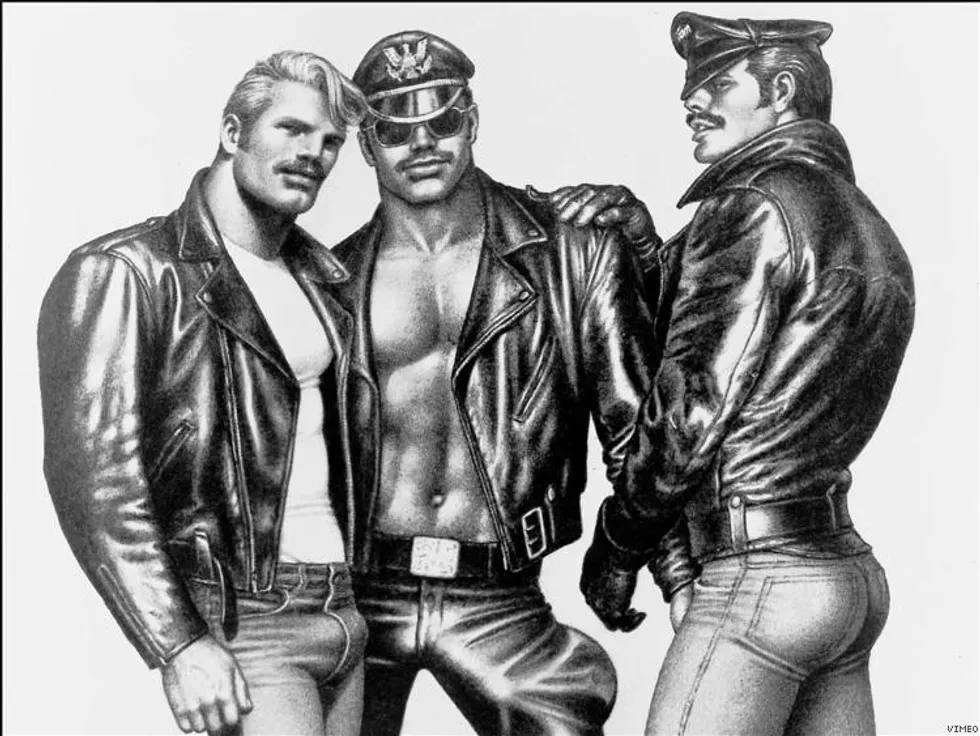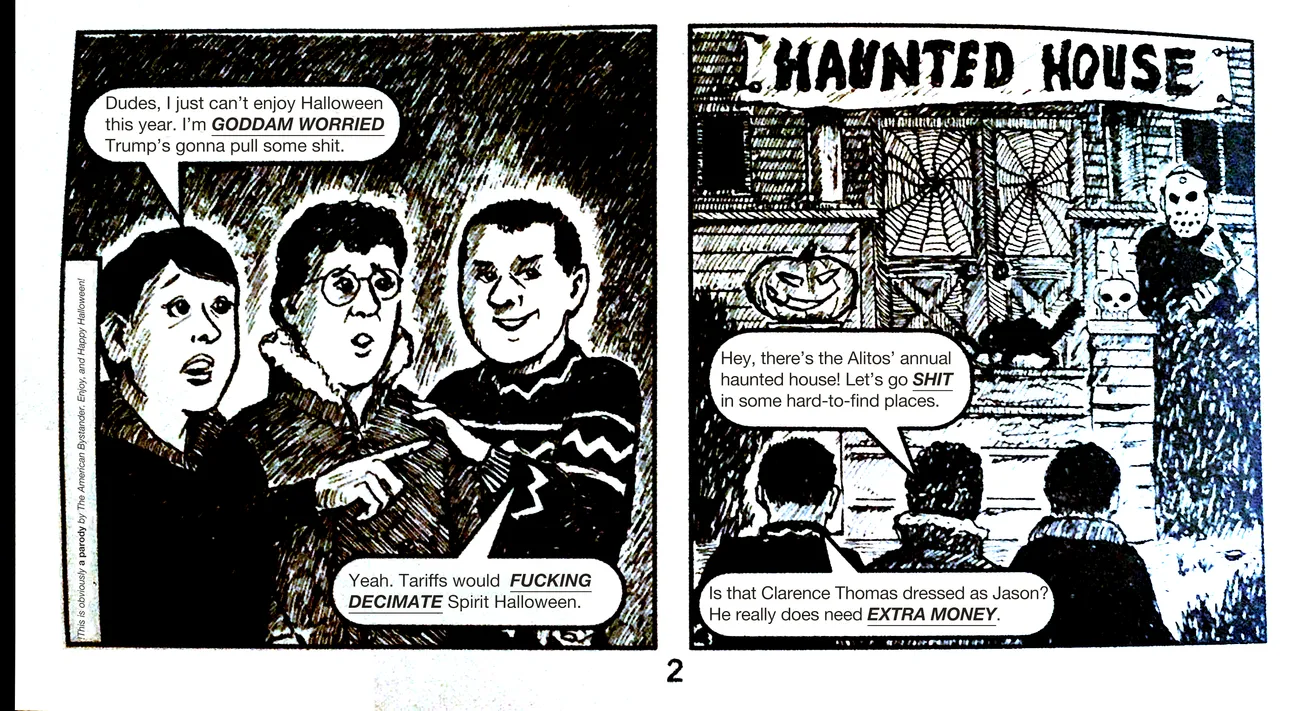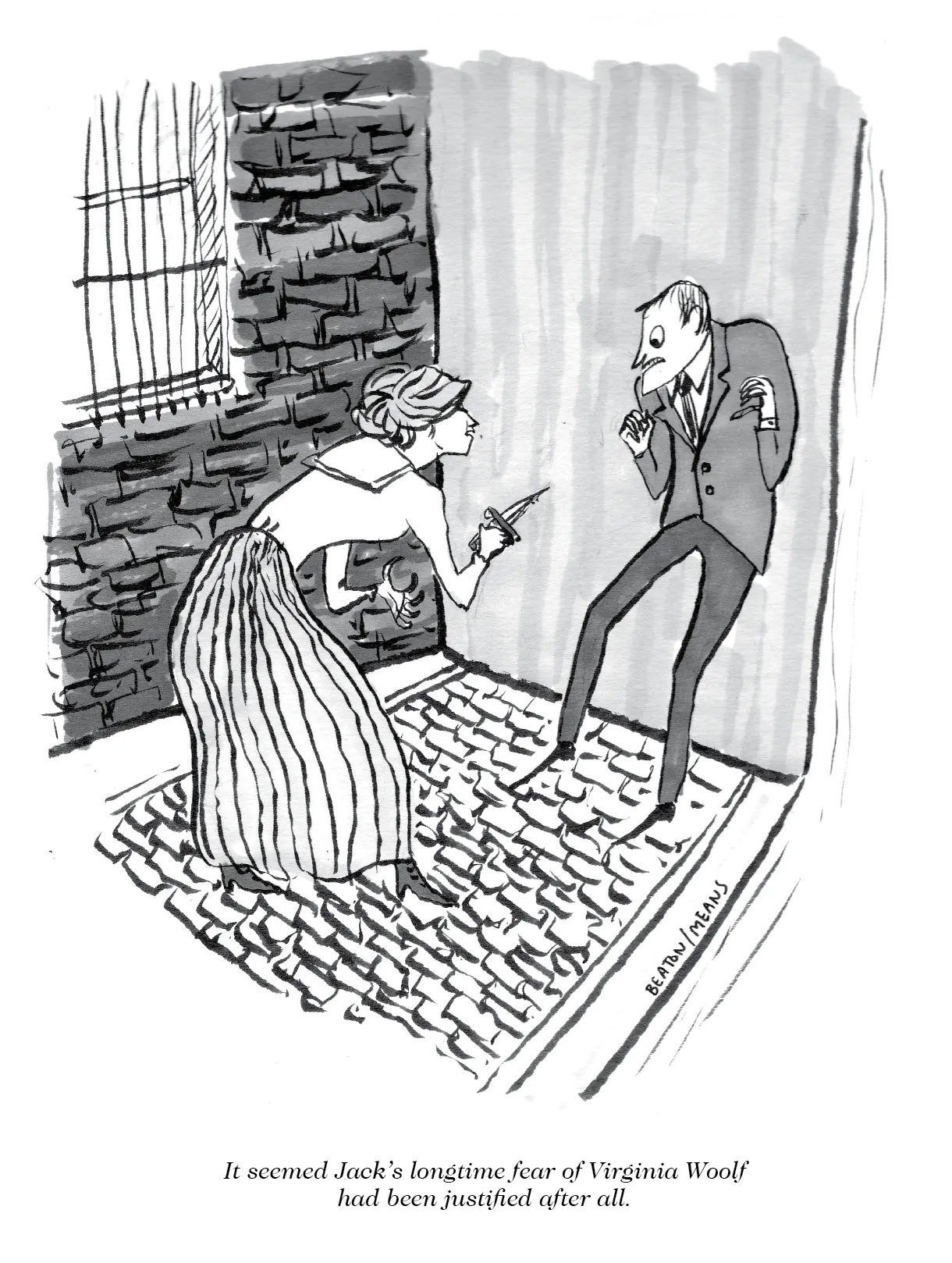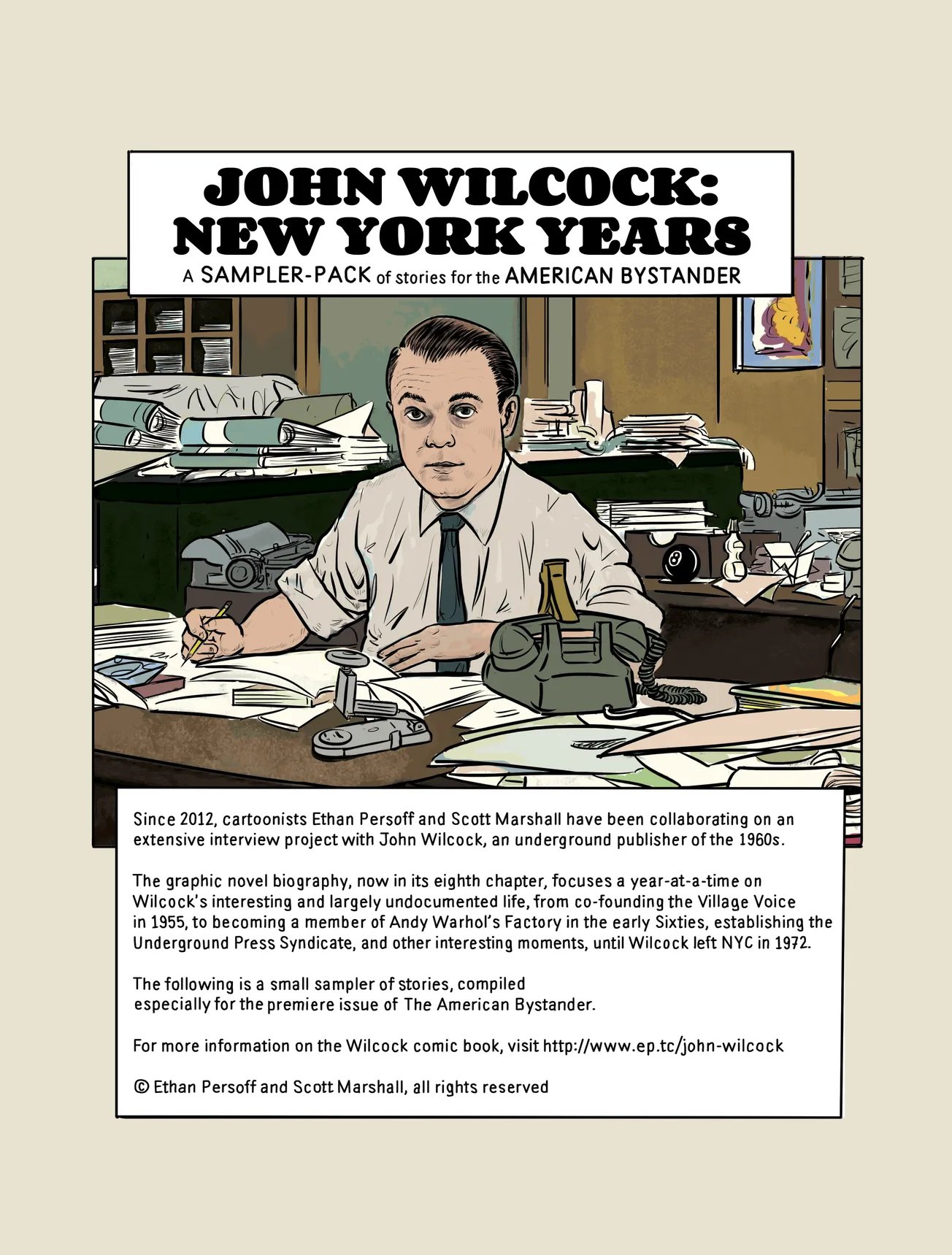With the news this morning that our new Speaker of the House believes that Noah’s Ark was an actual historical event, I submit to you that America needs an intervention. Mike Johnson and people like him should not be called Christians—they are Jesusaholics. One prayer is too many, a thousand prayers are not enough.
I was born in 1969 and spent most of my pre-college years in the South, so I carry a lot of trauma inflicted by fundamentalist evangelicals. I am not strictly rational on this topic, and you should not trust me on it. But you should trust Jesusaholics even less, for one simple reason: they are tigers who insist they are vegetarian. If you point out the blood on their whiskers, they either trot out a bunch of loopholes, or attack.
Let us start simply: it would be impossible for Mike Johnson to live as a modern American, much less accrue wealth and power, much less become Speaker of the House, were he living in strict accordance with the teachings of Jesus Christ. This does not require some subtle theology; it is obvious to anyone who can read. So why does Johnson lie to himself? And to us, too? Because he’s a Jesusaholic. Addicts always have very good rationales why they must do what they do; but that doesn’t mean you should give them the keys to your car. Or your country.
We all have our preferred lines of bullshit, myself included, and Johnson’s “faith” is just something he latched onto to relieve psychic pain or desperation. And I get it; I’m frequently in pain or desperation myself. But it’s really important to me not to have a coping mechanism that, for example, turns pregnant women into fugitive criminals. And it’s precisely my awareness of my own pain and desperation that makes me think, “I probably shouldn’t have the nuclear codes.”
As a good liberal, I hesitate to mention any of this. I don’t want to offend any of you—truly. But at 54, I am beyond tired of all of it. I’m tired of the Jesusaholics’ long explanations; I’m tired of their rage and their fantasies of persecution. I’m even tired of the “secularists’” trying to talk sense. It should not be controversial to say that a country with the ability to destroy the Earth shouldn’t be led by people who get off on the Book of Revelation.
Before I answer this week’s question, I want to share a pet theory of mine, how a mostly rational, science-forward country—a country which put a man on the moon a month after I was born—has now become a place where taxpayer dough is used to fund Creationist theme parks. It’s a lively little notion I’ve never seen anywhere else. Enjoy.
• • •

I am here to tell all you younger folks something amazing: the Sixties and Seventies were one hundred times more wild than you think they were. To pick an example at random: I remember going to an eight-year-old’s birthday party in 1977, where his dentist father gave us all hits of nitrous. This was not the Castro, and I was not surrounded by a bunch of guys drawn by Tom of Finland. These were good Lutherans, who lived in the country outside of Jefferson City, Missouri. By 1977, that is what passed for good parental judgment.
All the rules in our culture got relaxed at once—from tie-widths to Tarot to anal—and there was a ton of naughtiness going on throughout all levels of society. And so as the Eighties dawned, a vast wave of guilt and denial washed over the adults of the United States, especially the Baby Boomers, who had done the craziest shit of all. That’s why Reagan was so popular, even among “Democrats”: he gave the adults of the U.S.—especially those outside of urban areas—an opportunity to return to the comfortable repression they’d grown up with. Republican politics, and evangelical Christianity, gave Americans a way to repent and be forgiven for whatever crazy shit they’d done from 1963-80.
Then AIDS came along, and made that seem like not just a good idea, but a life-saver. People ask now, why didn’t straight society wake up about AIDS faster? Why did the rest of us put up with President Reagan not even mentioning a deadly STI? Because our country was busy taking all its Sixties-Seventies guilt and putting it onto gay people, while “washing themselves clean.” As long as AIDS was only caught by “sinners,” Jesusaholics loved it. It was confirmation.
But people still need excitement, so instead of screwing, everybody turned to making money. They knew that their church—be it mega- or simply mainline—might scold sexual license, but would wink at greed. Making money was what this country was about, right? And the collection plates must be filled. And the thing about a snootful of cocaine is, it makes you work better, or think you are.
I encourage you to do your own research; go find a Boomer you’re really close to, preferably one you’re not related to. Buy them a drink and ask them to tell you stories. You’ll start to see a pattern emerge. In 1972 they’re living on a commune and reading Castaneda; ten years later, they’re doing a bit of coke, three years into their first straight job, and planning a church wedding; and ten years after that, they’re Vice-President at Merrill Lynch.
So what about Gen X? Why is my generation more conservative? Not because we’d all gotten crazy, but because we’d seen the price of getting crazy. I’m not just talking about the divorces and the “latchkey kid” phenomenon and seeing your parents high; it hit much harder than that. My first semester of college, I took a course on AIDS, and the first thing Professor Alvin Novick said was, “Turn to your left; now turn to your right. By the time of your 25th Reunion, one of those people will be dead.”
We were all fortunate; this prediction didn’t come true, and by the end of the semester I’d developed a truly excellent Professor Novick impression which has served me well. (Buttonhole me at Reunions and I’ll do it for you.) But what if the country had reacted to HIV/AIDS with science, with a Moonshot-style effort, rather than official silence? How many people would be alive today? Or what if this “Christian nation” had acted like Jesus taught? Doesn’t Christianity demand we take care of our brothers and sisters? Why did people who loved Jesus the loudest, hate AIDS patients the most? What the hell religion are they following, anyway? And why do we take them seriously?
Because we’re not a Christian nation; since Reagan, we’re Jesusaholics and enablers. And traumas drive people towards Jesusaholism, so the Jesusaholics have a vested interest in keeping things bad, and making them worse.
The enabling needs to stop now. Whenever you wonder why we’re suddenly so powerless to solve the problems facing our nation (and world), just remember one thing: you can’t spell “Jesusaholic” without “a-hol.”
• • •
JS writes in to ask, “Why are most syndicated newspaper comic strips as funny as pink-eye? Is it that most funny people can’t draw (for example: Cartoons by Jeff Sawyer on Instagram); or is it possible that most people who can draw aren’t funny?”
JS, this is actually two questions. The first is: What’s up with syndicated newspaper comic strips? Why are they terrible?
When I was kid, I read the paper every day, and wouldn’t dream of missing the comic strips, especially the Sunday ones that were big and colorful. Now, I couldn’t tell you the last time I saw a strip. Off the top of my head, there are at least three reasons why syndicated strips aren’t as funny as they used to be.
1) Talent. Think about it: if you are Garry Trudeau today, are you going to draw a satirical comic strip where you have to predict political events in advance, or are you going to head to Saturday Night Live? Or, more likely still, TikTok? If you are Charles Schultz, or Charles Addams, doesn’t a deal with Amazon make more sense? No sane young person of any comedic talent is going to put the time in to learn how to do a great strip, not when there are a million other media they can master and, upon mastering them, have an actual paying career.
2) Editorial timidity. As the business has become more consolidated and positions have become fewer and shakier—and Jesusaholics have become relentless in their harassment—editors (at syndicates or at member papers) are simply not going to take the risk necessary to give that one stray crazy genius their shot. So they select bland, inoffensive stuff at a time when every other type of humor has gotten spicier, more intense, weirder.
3) Changes in drawing style, etc. The moment advertising switched from illustration to photography—probably around 1960?—artistic instruction began to change. Put simply, I think fewer people can draw, and those that can are more likely to go into either fine art or comic books. Also, the actual size of newspaper pages have shrunk, which encourages, well, Dilbert. Long before he was a truly troubling right-wing crank, Scott Adams was a guy who couldn’t draw, but had a way with a one-liner. His artistic crudity actually works in his favor, as simple styles can be perceived more easily in small spaces. Couple this with the general decline in draughtsmanship as the world has digitized, and of course newspaper strips are going to look like shit.
Which leads me to your second question: Are artists and funny people two distinct tribes? The minds are rather different, in my experience, but there are exceptions. Bill Watterson could really draw, and was really funny.
The Sixties changed things in a lot of arenas; success became very little about showing competency in mimicking one’s elders—doing it “how things are done”—and very much about expressing oneself. Compare cartoons in The New Yorker in 1960, and those in 1975. The earlier group trained itself on the cartoonists that were popular in the 1920s-50s; the latter group trained itself to draw in an idiosyncratic, personal style. Stylistically, Charles Addams is not so distinct from the cartoonists twenty years earlier; but Gahan Wilson? Sam Gross? George Booth? Jack Ziegler? Very different. Cartooning became a way to express oneself artistically, with the style and the joke being a unified whole.
Today, one’s drawing need only be good enough to get the joke across, and look distinctive. If the person is a comedy genius—like Gary Larson, or Randall Munroe (XKCD)—their work is as brilliant as syndicated strips have ever been. But a bad modern strip is both poorly written and poorly drawn.
In my rather large experience, people who can really draw—who really love to draw and have a gift for it—go into comic books or fine art or animation or storyboarding, where they can stretch out. People who make their living from writing jokes, if they draw at all, only draw well enough to get their ideas across. Print or even the web is no longer a place to land, only a waystation to writing for TV or movies or launching your podcast or personal brand.
And if you can’t write jokes or draw—thanks to the Jesusaholics, you can always be Jack Chick.
Every Friday, in between contemplating his upcoming eternity in torment, The American Bystander’s Editor & Publisher Michael Gerber answers questions from readers just like you. To add your question to the pile, email publisher@americanbystander.org and put “Question” in the subject line.





